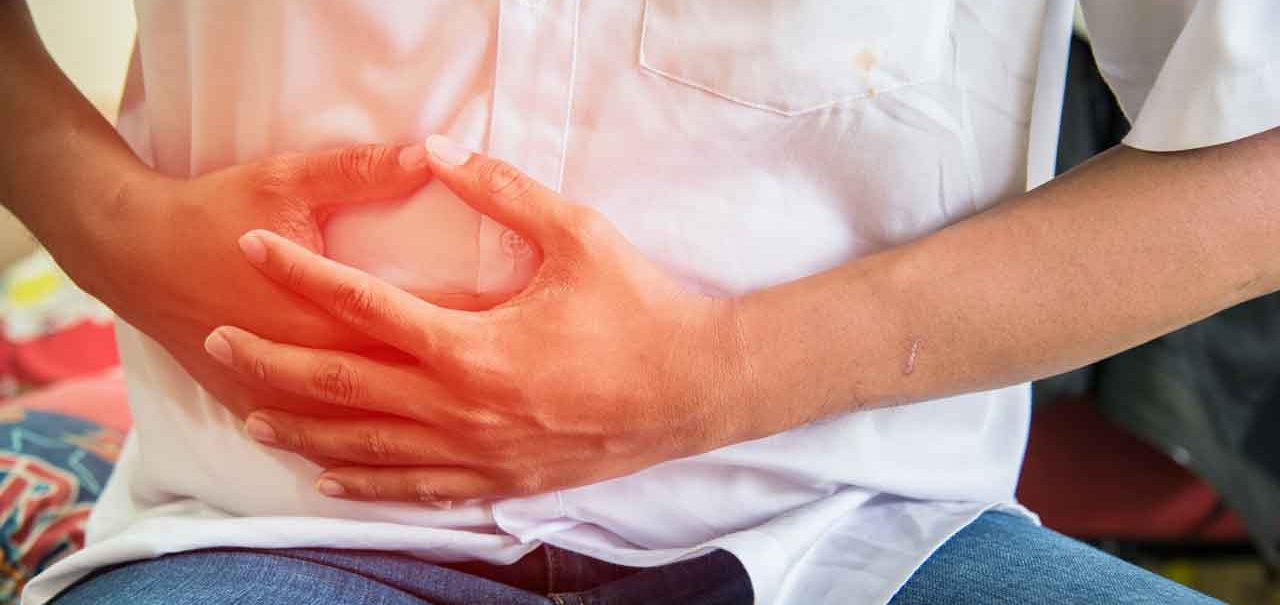Stomach Ulcer Symptoms

Spicy foods and stress can aggravate the stomach ulcer symptoms. But what causes ulcers is an infection that often clears up with antibiotics.
More than 25 million Americans will suffer from a stomach ulcer at some point during their lifetime, according to the Centers for Disease Control and Prevention.
What is an ulcer?
Normally, a thick layer of mucus protects your stomach from digestive juices, which are acidic. If you don’t have enough mucus, your stomach acid attacks the tissues that line the stomach or duodenum (the first part of the small intestine), and you’ll develop a hole or sore — also known as a peptic ulcer.
Spicy foods and stress can make the signs of an ulcer worse. But they don’t cause the hole.
YOU MIGHT ALSO LIKE: Why Does My Stomach Hurt?
What causes ulcers?
The real culprit is a bacterium called helicobacteror (H.) pylori. It causes more than 90 percent of duodenal ulcers and up to 80 percent of gastric ulcers (in the stomach).
Taking too many aspirin or NSAID painkillers like ibuprofen and naproxen can also damage your stomach and cause ulcers.
Stomach ulcer symptoms
The most common symptom is a dull burning sensation in the middle of the abdominals. It usually peaks when you don’t have food in your stomach —often in the early morning hours. The pain may last from minutes to hours and may go away if you eat or take antacids.
You might also frequently have heartburn, bloating, burping, or constantly feel too full. If you often take antacids and the pain keeps coming back, that’s a sign you need to see a doctor.
Your stomach lining may become inflamed, which can trigger contractions and make you nauseated. You might even vomit.
Sometimes people vomit for no clear reason even if they don’t have an ulcer, so don’t rush to conclusions. But do get checked out — an untreated ulcer can have serious complications.
Stomach ulcer symptoms that need urgent care: If your ulcer bleeds, you might vomit blood or digested blood (it looks like rounds). You may also see blood or blackness in your poop.
If the sore has gotten through your bowel wall, the pain can be intense and you might feel it in your back or chest. If the lining of your stomach splits, the pain will be sudden, severe, and get worse — head to the emergency room.
Stomach ulcer treatment
There are blood, breath, and stool tests to check for H. pylori. If it shows up on a test, you’ll be given antibiotics for about two weeks. You’ll also often be given acid-lowering drugs called proton pump inhibitors or H2 blockers.
If you have symptoms of a stomach ulcer but H. pylori doesn’t show up on a test, you may need an upper endoscopy, a procedure in which your gastroenterologist looks at your stomach walls to see if you might need surgery.
How to prevent ulcers
About 30 to 40 percent of people in the United States get an H. pylori infection, usually as children, but it usually doesn’t cause symptoms.
We don’t know how H. pylori is passed along or why it causes stomach ulcer symptoms in some people but not others.
The best prevention is to wash your hands after using the toilet and before eating and to drink safe, clean water. In China and Colombia, H. pylori infects over half the population, and gastric cancer is common.
It is also important not to rely on NSAIDs for long periods and to look for other ways to handle pain.
Updated:
March 25, 2020
Reviewed By:
Janet O’Dell, RN